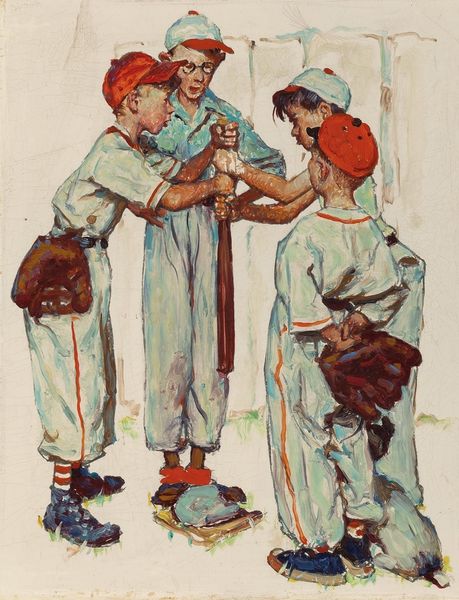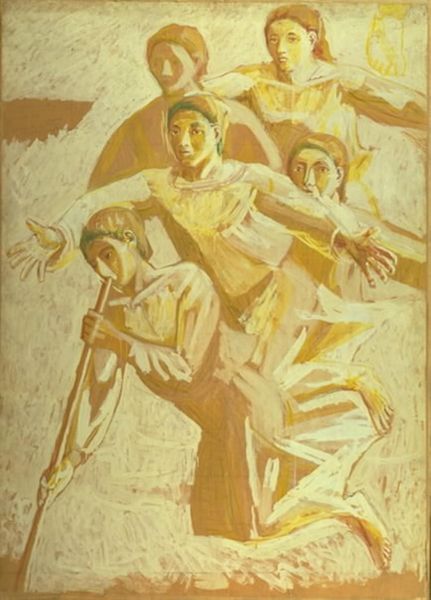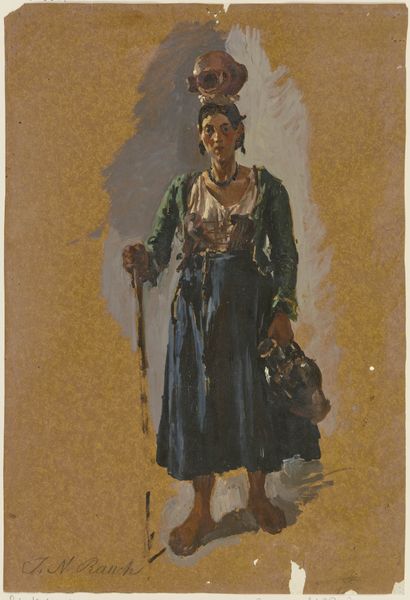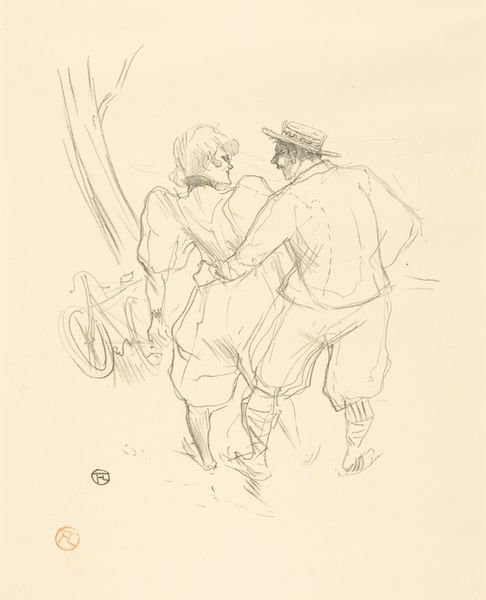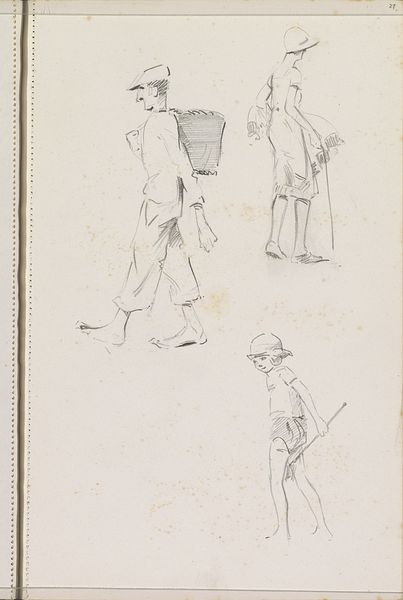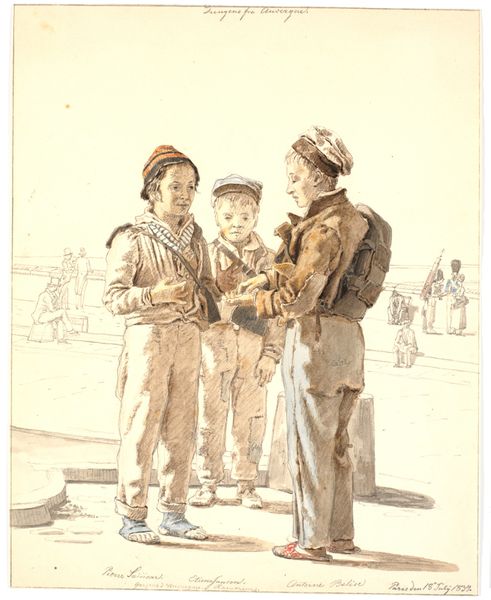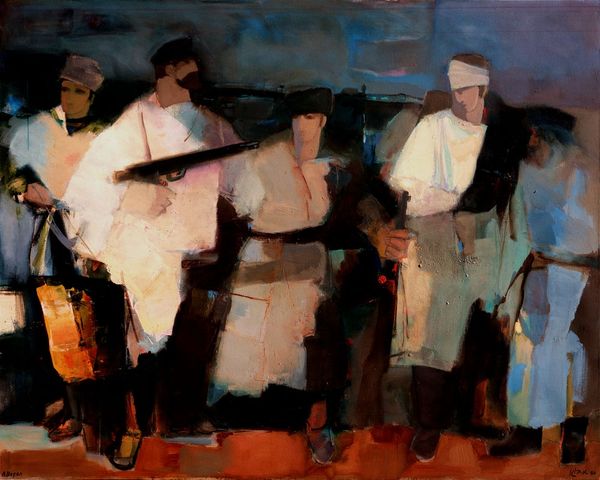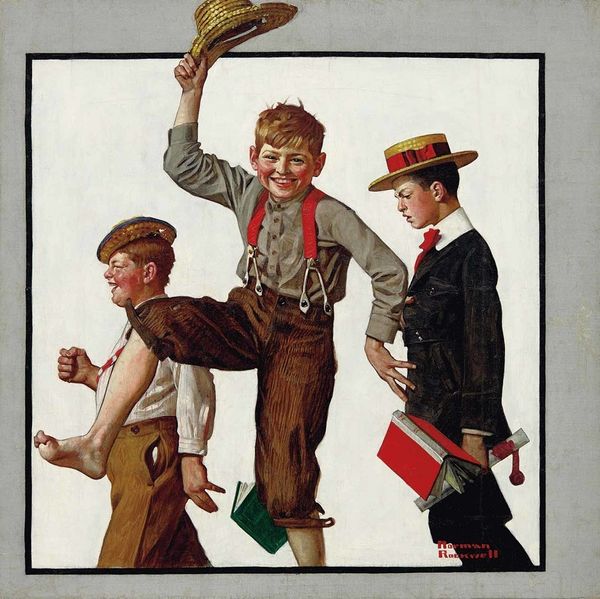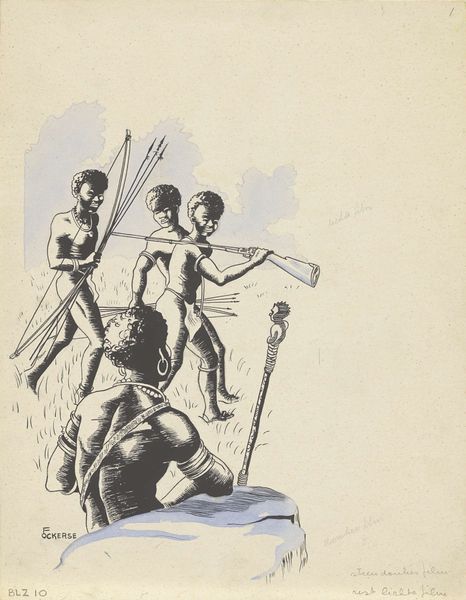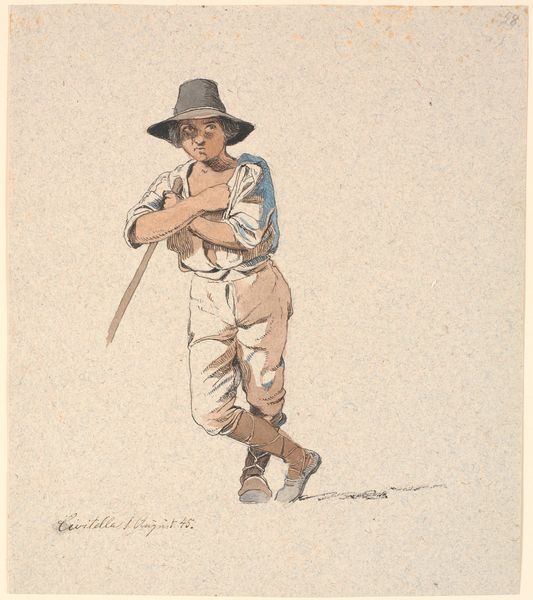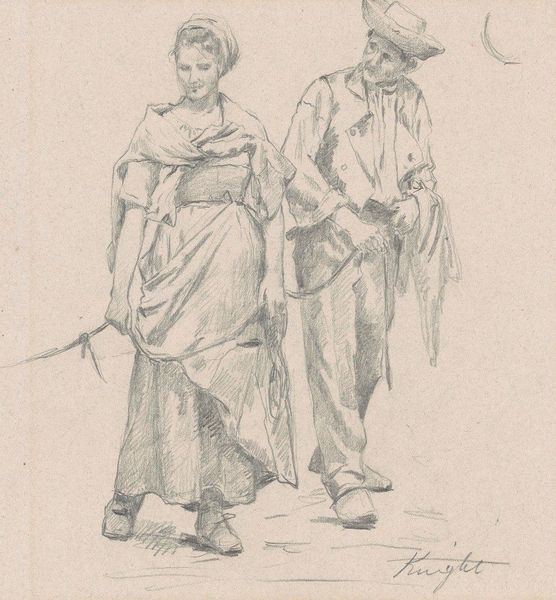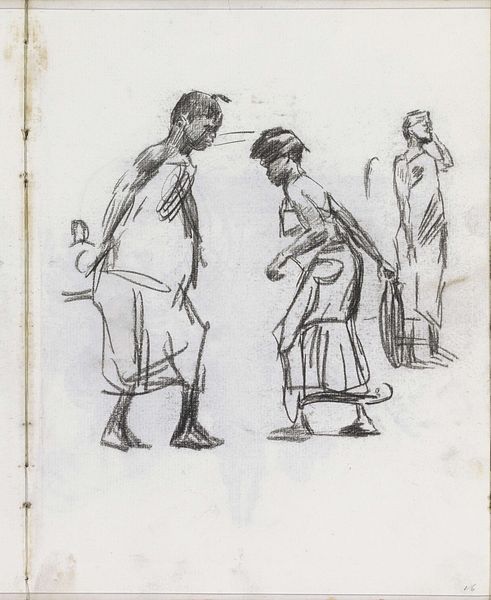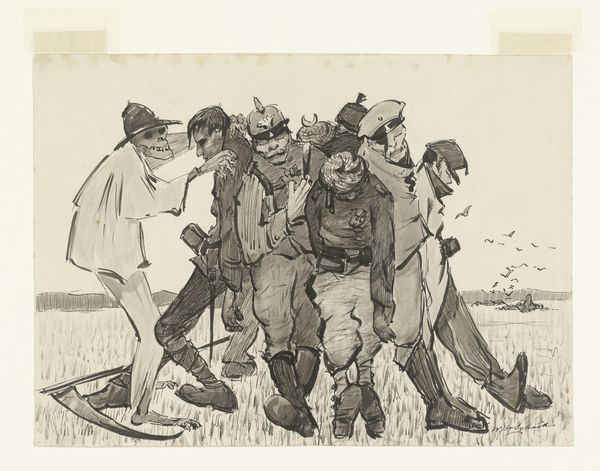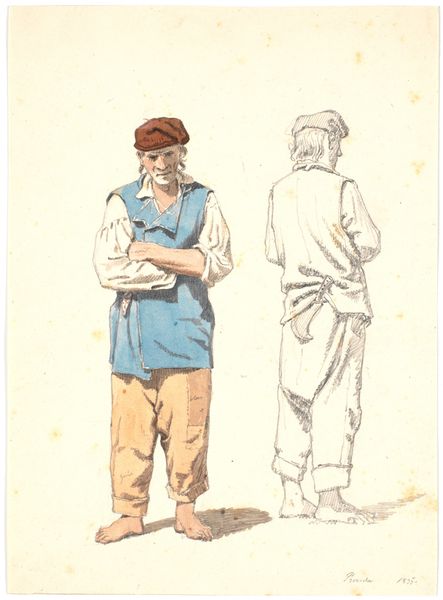
Copyright: Modern Artists: Artvee
Editor: This is "Missed," an oil painting by Norman Rockwell from 1951. The scene portrays a group of boys on a golf course, and there's a tangible feeling of expectation, and a touch of anxiety, in the air, like something important is about to happen. How do you interpret this work? Curator: Rockwell, though often seen as a chronicler of simpler times, subtly engages with themes of social positioning and performance. Notice how the boy putting is framed by the gaze of the others. How might their expressions reflect the pressures of masculinity and success these boys are already internalizing in the early 1950s? Editor: I see what you mean! The focus on this one boy’s success or failure…It's not just a casual game. It seems to be highlighting the very beginnings of competitive social dynamics. Curator: Exactly. And think about Rockwell’s choices. Is he celebrating idealized youth, or is he offering a critique of the expectations imposed upon young boys, the subtle performance of gender roles even in leisure? Consider too the almost aggressive ‘ordinariness’ he insists upon. It challenges any easy nostalgia. What does realism mean, when it's carefully staged and painted? Editor: So it's not *just* realism. It's more like...a staged commentary? Curator: Precisely! Rockwell is reflecting and refracting the dominant ideologies of his time. He asks us to look closer at the stories we tell ourselves about American innocence, the roles we perform. Editor: That’s such a different way of looking at Rockwell! I always saw him as very straightforward. Now I'm seeing layers I never noticed. Curator: He is both documentarian and cultural critic, and by understanding the prevailing narratives of the time, Rockwell exposes cracks in the façade of American exceptionalism.
Comments
No comments
Be the first to comment and join the conversation on the ultimate creative platform.
